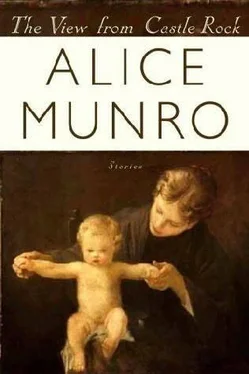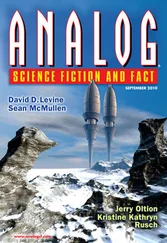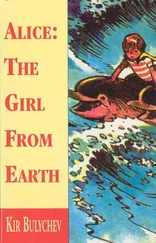“To think what their ancestors did,” he said. “The nerve it took, to pick up and cross the ocean. What was it squashed their spirits? So soon.”
When my father was twelve years old and had gone as far as he could go at the country school, he went into town to write a set of exams. Their proper name was the Entrance Examinations, but they were known collectively as the Entrance. The Entrance meant, literally, the entrance to high school, but it also meant, in an undefined way, the entrance to the world. The world of professions such as medicine or law or engineering or teaching. Country boys did enter that world in the years before the First World War, more easily than they did a generation later. It was a time of prosperity in Huron County and expansion in the country. It was 1913 and the country was not yet fifty years old.
My father passed the Entrance with high honors and went on to the Continuation School in the town of Blyth. Continuation Schools offered four years of high school, without the final year called Upper School, or Fifth Form-you would have to go to a larger town for that. It looked as if he was on his way.
During his first week at Continuation School my father heard the teacher read a poem.
Liza Grayman Ollie Minus.
We can make Eliza blind.
Andy Parting, Lee Beehinus.
Foo Prince in the Sansa Time.
He used to recite this to us as a joke, but the fact was, he did not hear it as a joke. Around the same time, he went into the stationery store and asked for Signs Snow Paper.
Signs Snow Paper.
Science notepaper.
Soon he was surprised to see the poem written on the blackboard.
Lives of Great Men all remind us,
We can make our lives sublime.
And, departing, leave behind us
Footprints on the Sands of Time.
He had not hoped for such reasonable clarification, would not have dreamed of asking for it. He had been quite willing to give the people at the school the right to have a strange language or logic. He did not ask for them to make sense on his terms. He had a streak of pride which might look like humility, making him scared and touchy, ready to bow out. I know that very well. He made a mystery there, a hostile structure of rules and secrets, far beyond anything that really existed. He felt nearby the fierce breath of ridicule, he overestimated the competition, and the family caution, the country wisdom, came to him then: stay out of it.
In those days people in town did generally look upon the people from the country as more apt to be slow-witted, tongue-tied, uncivilized, than themselves, and somewhat more docile in spite of their strength. And farmers saw people who lived in towns as having an easy life and being unlikely to survive in situations calling for fortitude, self-reliance, hard work. They believed this in spite of the fact that the hours men worked at factory jobs or in stores were long and the wages low, in spite of the fact that many houses in town had no running water or flush toilets or electricity. But the people in town had Saturday or Wednesday afternoons and the whole of Sundays off and that was enough to make them soft. The farmers had not one holiday in their lives. Not even the Scots Presbyterians; cows don’t recognize the Sabbath.
The country people when they came into town to shop or to go to church often seemed stiff and shy and the town people did not realize that this could actually be seen as a superior behavior. I'm-not-going-to-let-any-of-them-make-a-fool-out-of-me behavior. Money would not make much difference. Farmers might maintain their proud and wary reserve in the presence of citizens whom they could buy and sell.
My father would say later that he had gone to Continua- ’ tion School too young to know what he was doing, and that he should have stayed there, he should have made something out of himself. But he said this almost as a matter of form, not as if he cared very much. And it wasn’t as if he had run off home at the first indication that there were things he didn’t understand. He was never very clear about how long he had stayed. Three years and part of the fourth? Two years and part of the third? And he didn’t quit suddenly-it was not a matter of going to school one day and staying away the next and never showing up again. He just began to spend more and more time in the bush and less and less time at school, so that his parents decided there was not much point in thinking about sending him to a larger town to do his Fifth Form, not much hope of university or the professions. They could have afforded that-though not easily-but it was evidently not what he wanted.
And it could not be seen as a great disappointment. He was their only son, the only child. The farm would be his.
There was no more wild country in Huron County then than there is now. Perhaps there was less. The farms had been cleared in the period between 1830 and 1860, when the Huron Tract was being opened up, and they were cleared thoroughly. Many creeks had been dredged-the progressive thing to do was to straighten them out and make them run like tame canals between the fields. The early farmers hated the very sight of a tree and admired the look of open land. And the masculine approach to the land was managerial, dictatorial. Only women were allowed to care about landscape and not to think always of its subjugation and productivity. My grandmother, for example, was famous for having saved a line of silver maples along the lane. These trees grew beside a crop field and they were getting big and old-their roots interfered with the ploughing and they shaded too much of the crop. My grandfather and my father went out one morning and made ready to cut the first of them down. But my grandmother saw what they were doing from the kitchen window and she flew out in her apron and harangued and upbraided them so that they finally had to take up the axes and the crosscut saw and leave the scene. The trees stayed and spoiled the crop at the edge of the field until the terrible winter of 1935 finished them off.
But at the back of the farms the farmers were compelled by law to leave a woodlot. They could cut trees there both for their own use and to sell. Wood of course had been their first crop-rock elm went for ships’ timbers and white pine for the ships’ masts, until hardly any rock elm or white pine remained. Now there was protection decreed for the poplar and ash and maple and oak and beech, the cedar and hemlock that were left.
Through the woodlot-called the bush-at the back of my grandfather’s farm ran the Blyth Creek, dredged a long time ago when the farm was first cleared. The earth dredged out then made a high, hummocky bank on which thick clumps of cedars grew. This was where my father started trapping. He eased himself out of school and into the life of a fur-trapper. He could follow the Blyth Creek for many miles in either direction, to its rising in Grey Township or to the place where it flows into the Maitland River which flows into Lake Huron. In some places-most particularly in the village of Blyth-the creek became public for a while, but for much of its length it ran through the backs of farms, with the bush on either side, so that it was possible to follow it and be hardly aware of the farms, the cleared land, the straight-laid roads and fences-it was possible to imagine that you were out in the forest as it was a hundred years ago, and for hundreds of years before that.
My father had read a lot of books by this time, books he found at home and in the Blyth Library and in the Sunday School Library. He had read books by Fenimore Cooper and he had absorbed the myths or half-myths about wilderness that most of the country boys around him knew nothing about, since few of them were readers. Most boys whose imaginations were lit up by the same notions as his would live in cities. If they were rich enough they would travel north every summer with their families, they would go on canoe trips and later on fishing and hunting trips. If their families were truly rich they would navigate the rivers of the far north with Indian guides. People eager for this experience of the wilderness would drive right through our part of the country without noticing there was one bit of wilderness there.
Читать дальше












